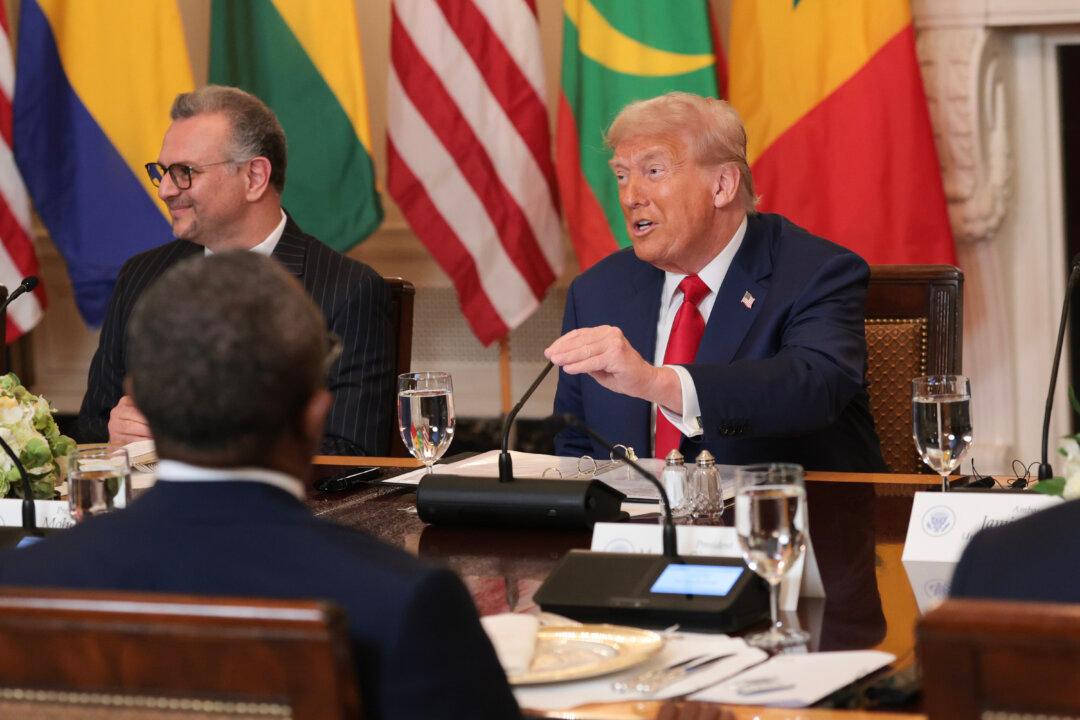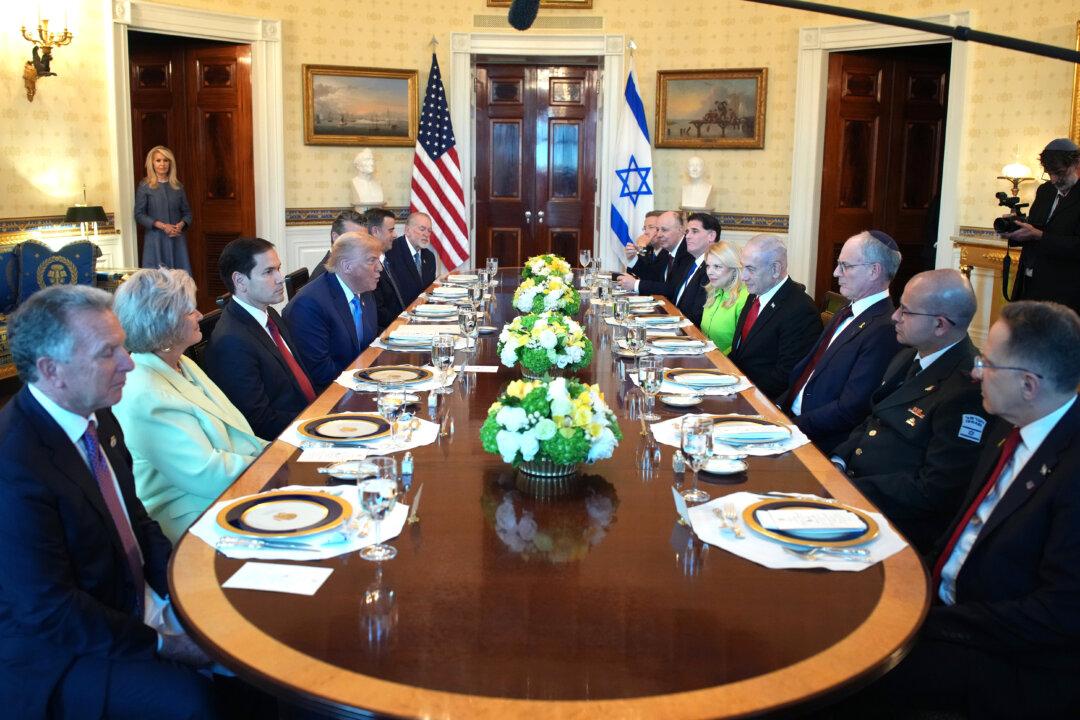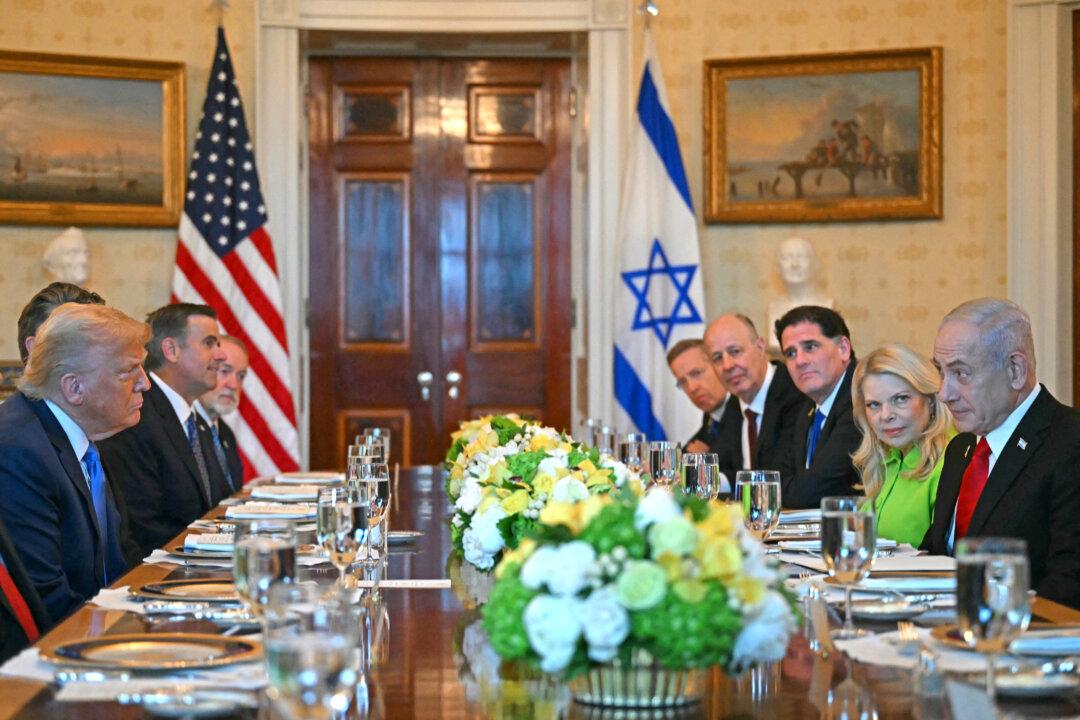President Donald Trump said trade talks between U.S. and Chinese officials in London are going well.
The goal for U.S. negotiators, who wrapped up the first day of discussions, is to “open up China,” the president added.
“And if we don’t open up China, maybe we won’t do anything, but we want to open up China,” Trump said. “It'll be a great thing for China, great thing for the rest of the world.”
White House press secretary Karoline Leavitt told Fox News on June 8 that U.S. trade officials would press their Chinese counterparts to fully comply with the terms of a May 12 trade agreement reached in Geneva, which included reciprocal tariff reductions. Under the deal, both countries agreed to reduce tariffs by 115 percent while maintaining an additional 10 percent levy.
“The administration has been monitoring China’s compliance with the deal, and we hope that this will move forward to have more comprehensive trade talks,” Leavitt said.
“The purpose of the meeting today is to make sure that they’re serious, but to literally get handshakes … and get this thing behind us,” Hassett said.
“Our expectation is that ... immediately after the handshake, any export controls from the U.S. will be eased, and the rare earths will be released in volume, and then we can go back to negotiating smaller matters.”
The Chinese regime’s restrictions on critical mineral shipments to the United States are seen as a countermeasure to Trump’s trade policy changes.
Rare Earths Still in Focus
Despite Trump’s declaration that the rare earths dispute has been resolved, his officials remain cautious.According to National Economic Council Director Kevin Hassett, while rare earth exports have resumed, they are still below the levels previously agreed upon.
“Those exports of critical minerals have been getting released at a rate that is higher than it was but not as high as we believe we agreed to in Geneva,” he told CBS’s “Face the Nation” on June 8.
“We want the rare earths, the magnets that are crucial for cell phones and everything else, to flow just as they did before the week of April, and we don’t want any technical details to slow that down, and that’s clear to them.”
In response to Trump’s reciprocal tariffs, Beijing introduced export restrictions on critical rare earth elements, metals, and magnets effective April 4. Beijing has tightened export controls on seven rare earth elements—samarium, gadolinium, terbium, dysprosium, lutetium, scandium, and yttrium—straining supply chains critical to America’s defense, aerospace, and automotive sectors.
The latest restrictions follow a December 2024 export ban on three key minerals—antimony, gallium, and germanium—imposed in retaliation for former President Joe Biden’s technology curbs targeting the Chinese communist regime.
While the terms of the deal are still being worked out, Hassett expressed optimism about the London meeting.
“I’m very comfortable that this deal is about to be closed,” he said.
China’s Longstanding Trade Violations
In May, the U.S. Commerce Department issued a new rule banning the use of Huawei Technologies’ Ascend computer chips worldwide, arguing they were developed in violation of American export controls.The move drew backlash from Beijing, which urged the U.S. government to undo the action.
The recent dispute reflected broader U.S. concerns over Beijing’s long-standing abusive trade practices that disadvantage American businesses and workers.
Communist China’s rise since joining the World Trade Organization in 2001 has been mainly fueled by such controversial trade policies, which include stealing intellectual property, attacking foreign firms operating in the country, manipulating its currency, and massively subsidizing domestic companies.
Even if Beijing comes to the negotiation table, it’s unwilling to bargain on these core problems that the United States wants resolved, according to Robert Atkinson, president of the Information Technology and Innovation Foundation, a science and technology think tank.
“They’ve never been willing to even acknowledge that these are problems,” he told The Epoch Times in an April interview.
It remains unclear to what extent Beijing’s unfair trade practices will be addressed or resolved during the London talks.
Beijing initially denied having violated the Geneva trade agreement on May 30. The regime escalated its rhetoric on June 2, when a spokesperson for the Chinese Commerce Ministry issued a statement through state media attacking Washington’s decision to revoke visas for Chinese students with ties to the Chinese Communist Party.
“The United States and China have strategic interests in one another’s markets, and the President is always going to put American workers and industries first,” Leavitt said during the Fox News interview. “And the talks in Geneva really set the table for that, but we need China to comply with their side of the deal. And so that’s what the trade team will be discussing tomorrow.”
The U.S. team will issue a readout after the meeting, she said.
New customs data revealed that China’s exports to the United States plummeted more than 34 percent year over year in May, the sharpest decline since the onset of the coronavirus pandemic.
Meanwhile, Trump’s 90-day deadline on reciprocal tariffs is approaching, and the United States has only secured one trade agreement, with the United Kingdom.
Last week, White House press secretary Karoline Leavitt confirmed that the U.S. Trade Representative’s Office sent letters to trading partners reminding them of the upcoming deadline.
Officials have said that the United States is close to reaching trade agreements and that Washington has been involved in trade talks with the European Union, Japan, Vietnam, and India, among others.








